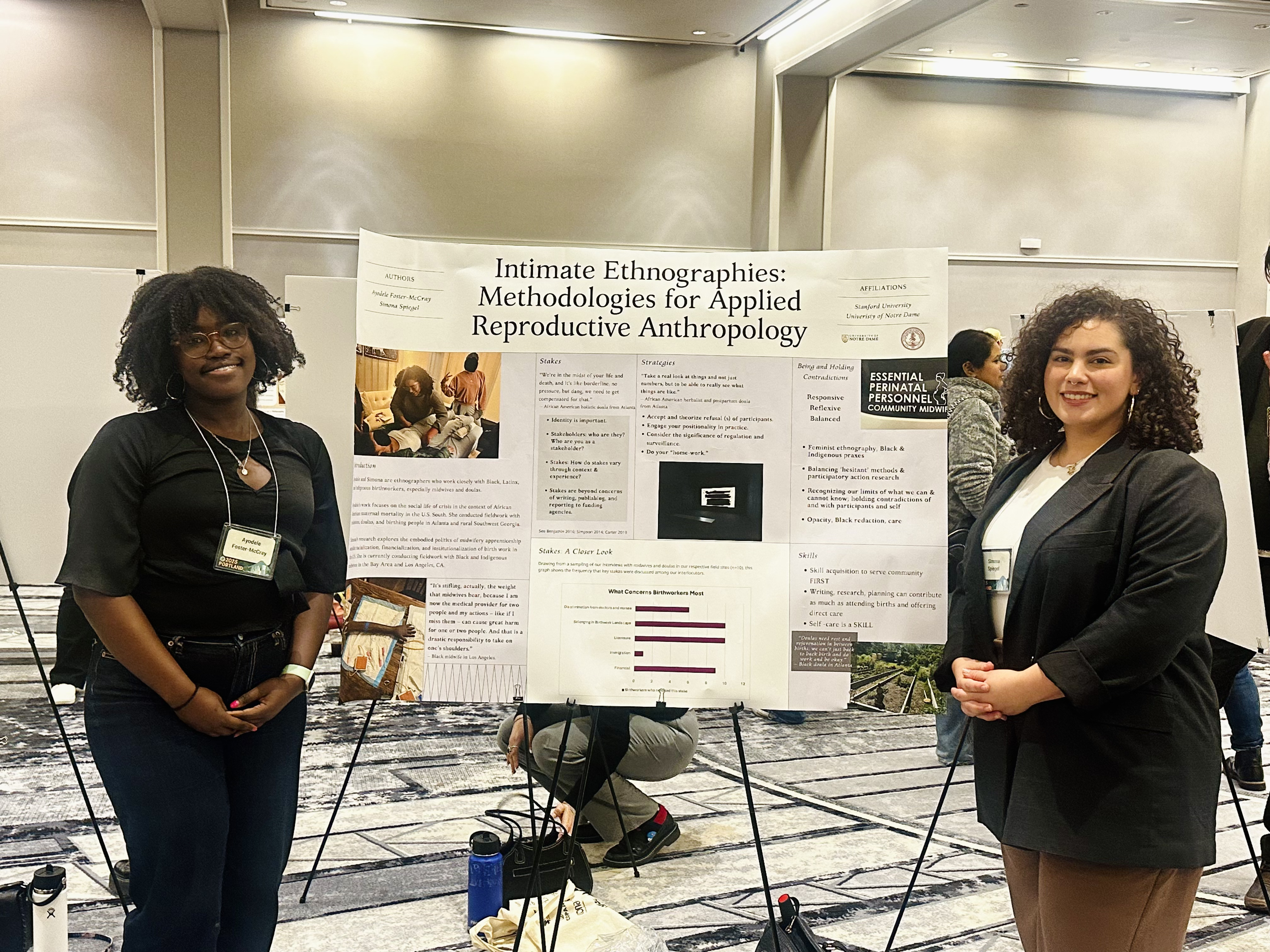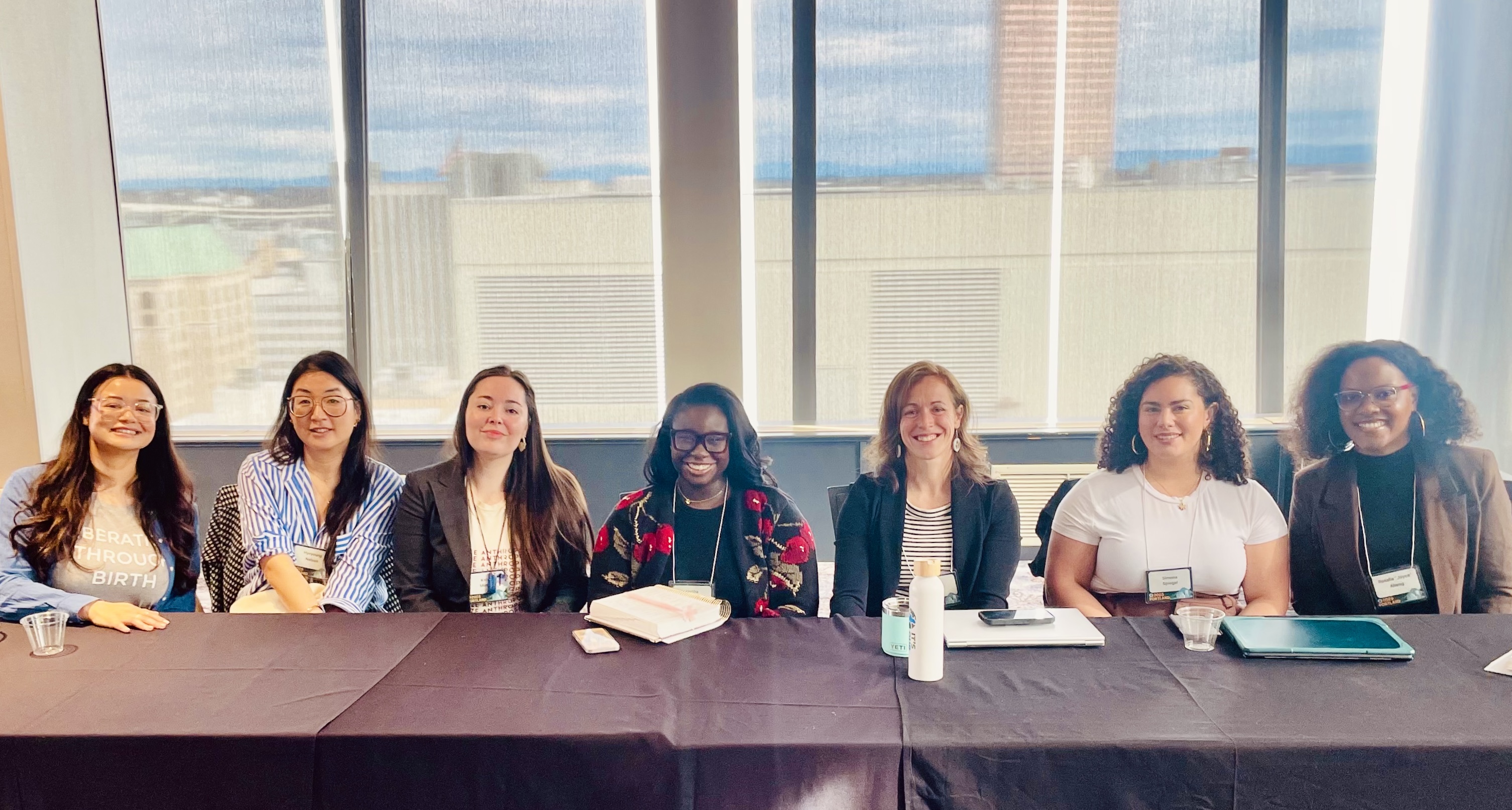Society for Applied Anthropology (SfAA) Annual Meeting; Portland, Oregon
Kellogg Institute Conference Travel Grants
Conference: Society for Applied Anthropology (SfAA) Annual Meeting; Portland, Oregon
March 25-29, 2025
Presentation: Intimate Ethnographies: Methodologies for Applied Reproductive Anthropology
REPORT:


In March 2025 I participated in the 2025 Society for Applied Anthropology (SfAA) Annual Meeting in Portland, Oregon. This opportunity enabled me to present my research, network with experts in my field, and further refine my dissertation work on maternal health disparities in the U.S., Mexico, and their shared borderlands.
As an invited presenter on the roundtable panel “Doulas and Policies: Navigating the State, Medicaid and Birthwork,” I was able to share insights from my ongoing dissertation work for valuable feedback from scholars studying related topics. This panel examined the growing role of doulas in maternal health interventions in the U.S. and abroad. My presentation offered a comparative analysis of reproductive care systems in the U.S. and Mexico, drawing on my fieldwork in borderland regions. In conversation with fellow panelists, we fruitfully discussed how birth care providers navigate formal healthcare systems in both countries, highlighting differences in policy, certification, and financialization practices. Through these conversations, I contributed unique cross-border and intercultural insights to the panel that describe how these care providers straddle bureaucratic systems while conceiving and prioritizing culturally competent care. Much of this session produced lively discussion on topics aligned with the Kellogg Institute’s values of democracy and human development, as we discussed the politics of population health, the democratization of maternal health care, and the role of doulas in health development efforts in various contexts. The critical conversations generated at the panel will inform my dissertation’s comparative approach, particularly how national policies intersect with community-based care efforts.
In addition to the panel, I co-authored and presented a poster with Ayodele Foster-McCray from Stanford University, titled “Intimate Ethnographies: Methodologies for Applied Reproductive Anthropology.” We focused on the ethical and methodological challenges of conducting research in precarious reproductive care settings conducted with practitioners and vulnerable populations in the U.S. and Mexico. We articulated and contributed a toolkit for community-engaged scholarship that emphasizes strategic opacity, a practice that prioritizes relational ethics and community accountability in politically sensitive research environments. This approach received strong interest, and discussions with other researchers face-to-face in the poster setting underscored the importance of maintaining ethical research standards in marginalized communities.
I also attended sessions beyond my field of study (as a well rounded scholar does) on environmental development, heritage and land conservation, Indigenous rights, food ecologies, and mental healthcare access. Gaining knowledge in these subtopics deepened my understanding of how community-based care intersects with larger political and economic systems on multiple scales. The conference also provided ample networking opportunities that will influence my research moving forward. I connected with scholars and practitioners working on similar topics in both Latin America and the U.S., gaining insights into shared challenges in reproductive care and policy. These discussions have helped refine the comparative dimensions of my dissertation, which examines how midwives and doulas in both the U.S. and Mexico respond to state policies and work to reduce maternal health disparities. This experience has significantly contributed my dissertation research, advanced my scholarly thinking, and broadened my understanding of the global landscape of maternal health. The feedback and conversations I engaged in at SfAA will help shape the next phase of my research, particularly as I continue to explore how grassroots actors navigate, interact with, and shape state intervention in reproductive care. These positive experiences shape the nuances of my data collection, methodology of analyses, and the writing of the dissertation itself in the coming months.






